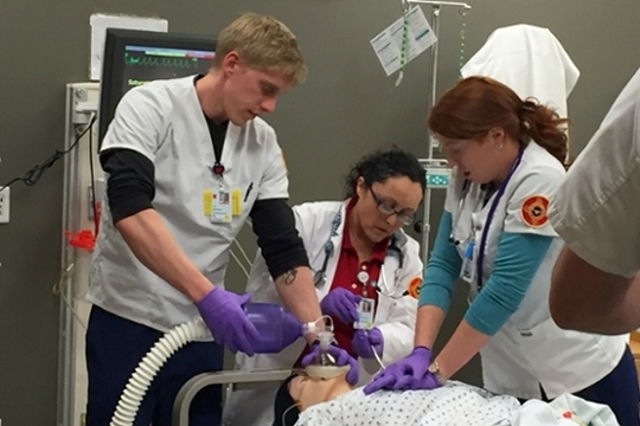
Nursing ETDs
Publication Date
9-15-2014
Abstract
Background: Over the past 10 years, the number of people diagnosed and living with cancer has increased exponentially. In 2006, the Institute of Medicine (IOM) released a report targeting survivorship care as an area that was not being appropriately addressed. Since then, the majority of research has focused on breast, colon, and prostate cancers, the three most common cancer types. Historically, survivorship care plans (SCPs) have been identified as important tools that can aid a patients transition from acute survivorship to extended and permanent survivorship and from oncologist to primary care provider. Purpose: The purpose of this descriptive qualitative pilot study was to focus on the cancer survivorship of women with ovarian cancer. In attempt to meet the specific needs of this population, this study implemented an ovarian cancer specific SCP (O-SCP) with women who have been newly diagnosed. The O-SCP was implemented at the beginning of treatment rather than at completion in order to address survivorship needs at the onset of patients' survivorship journey, rather than at the completion of treatment. Because uncertainty begins at diagnosis, the O-SCP may be a tool to address this state from the onset of diagnosis and during and after treatment. Methods: Purposive sampling was used to recruit seven women newly diagnosed with ovarian cancer. Data were collected at two different meetings with the participant: first, when the O-SCP was implemented, and second, approximately six weeks later, when an open-ended, semi-structured interview was conducted with each patient. Thematic analysis was carried out on the seven digitally-recorded interviews. Results: Three categories of themes emerged during analysis: resource, communication, and negative emotional response. Themes were interrelated with each other. Discussion: New information was identified regarding the usefulness of a disease-specific SCP for women diagnosed with ovarian cancer when the O-SCP was implemented at the beginning of chemotherapy treatment. While this study was small is size, it produced positive preliminary findings that the early implementation of an O-SCP provides a benefit to patients and may reduce uncertainty. Notably the early implementation of the O-SCP provided patients with a good resource and facilitated improved communication with outside providers. Future Research: Further research is necessary to explore if the early implementation of an O-SCP can reduce specific negative emotional responses (such as fear, anxiety, and anger) exhibited by women with ovarian cancer. In addition, to distinguish the needs of women newly diagnosed with ovarian cancer and those whose cancer reoccurs and whether O-SCP should exist specific to each population. Finally, further content analysis of the O-SCP would also be worthwhile to determine usability in the target population, including cultural acceptability, visual appeal, and ease of understanding.
Degree Name
Nursing
Level of Degree
Masters
Department Name
College of Nursing
First Committee Member (Chair)
Haozous, Emily PhD, RN
Second Committee Member
Davis, Andra PhDc, RN, AOCN
Keywords
ovarian cancer, survivorship
Language
English
Document Type
Thesis
Recommended Citation
Phillips, Carolyn. "No More Sticky Notes: The Early Implementation of an Ovarian Cancer Survivorship Care Plan." (2014). https://digitalrepository.unm.edu/nurs_etds/33
